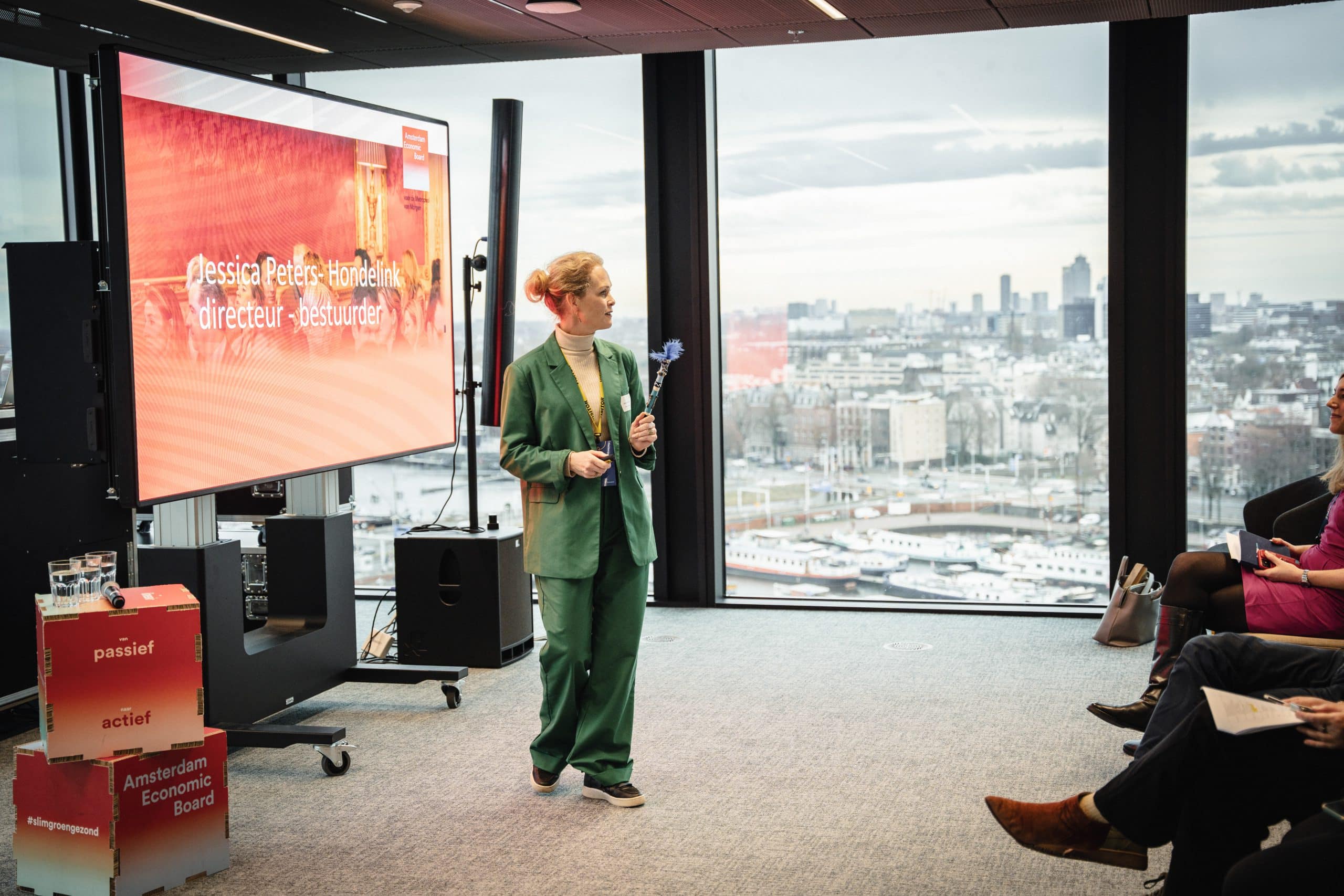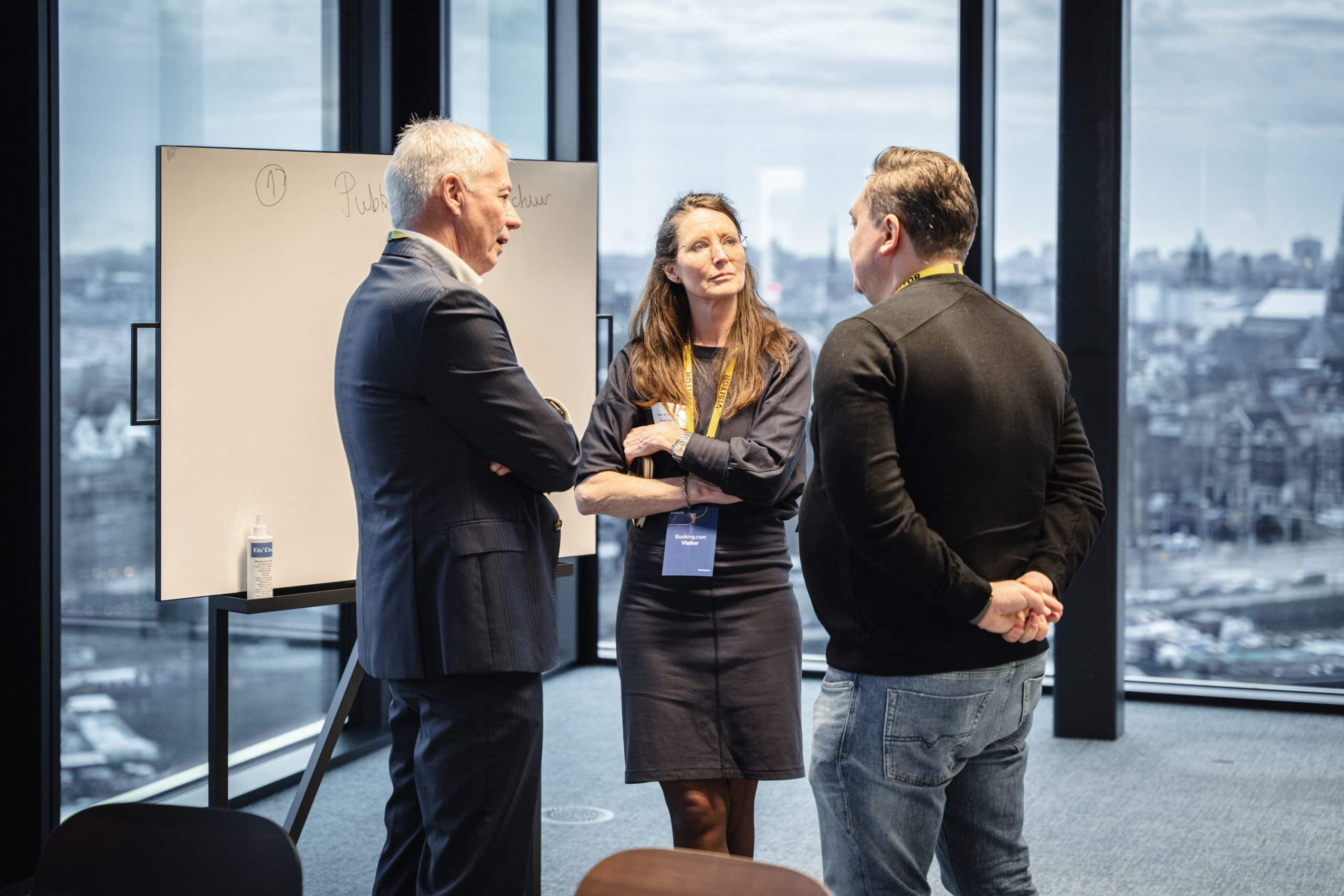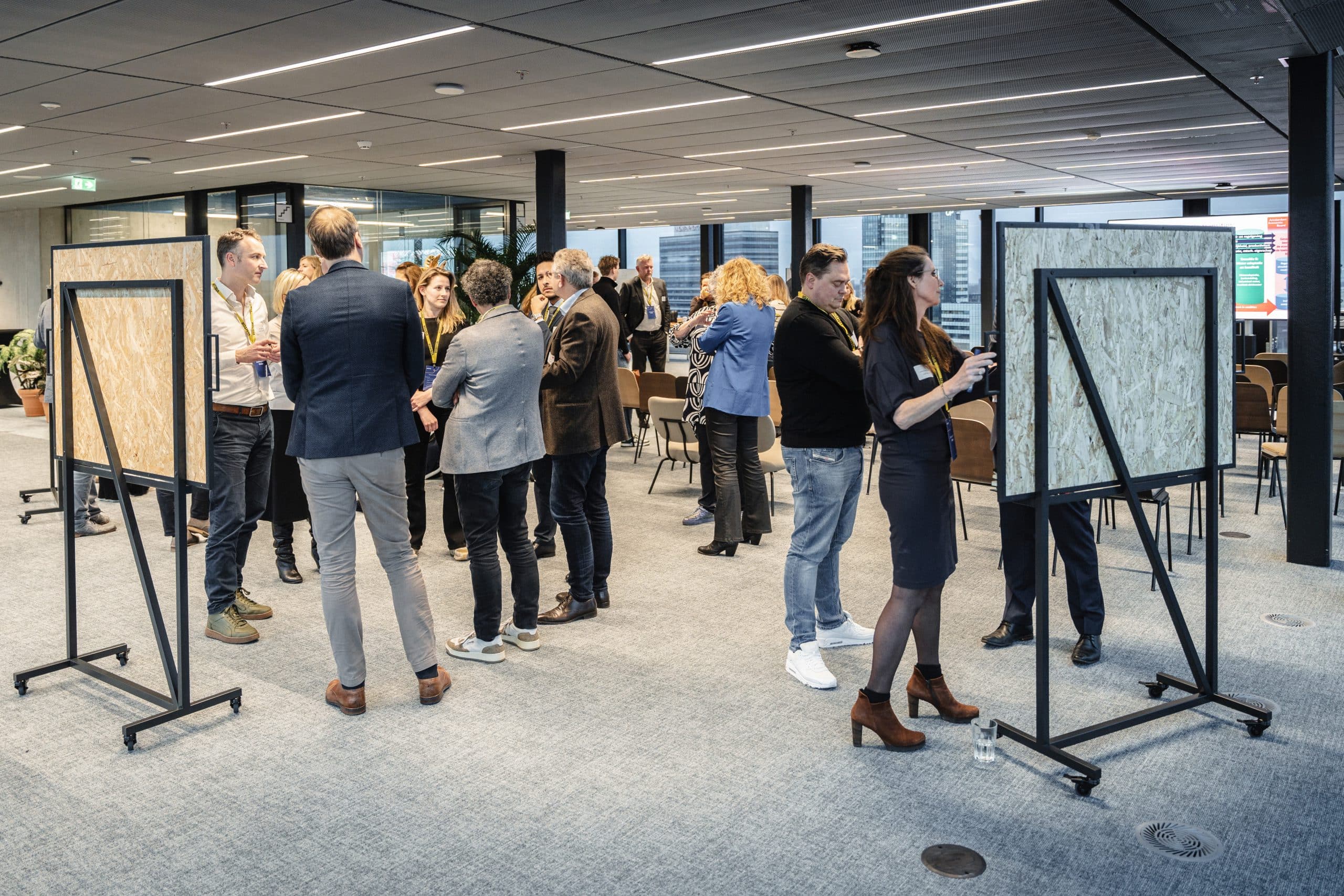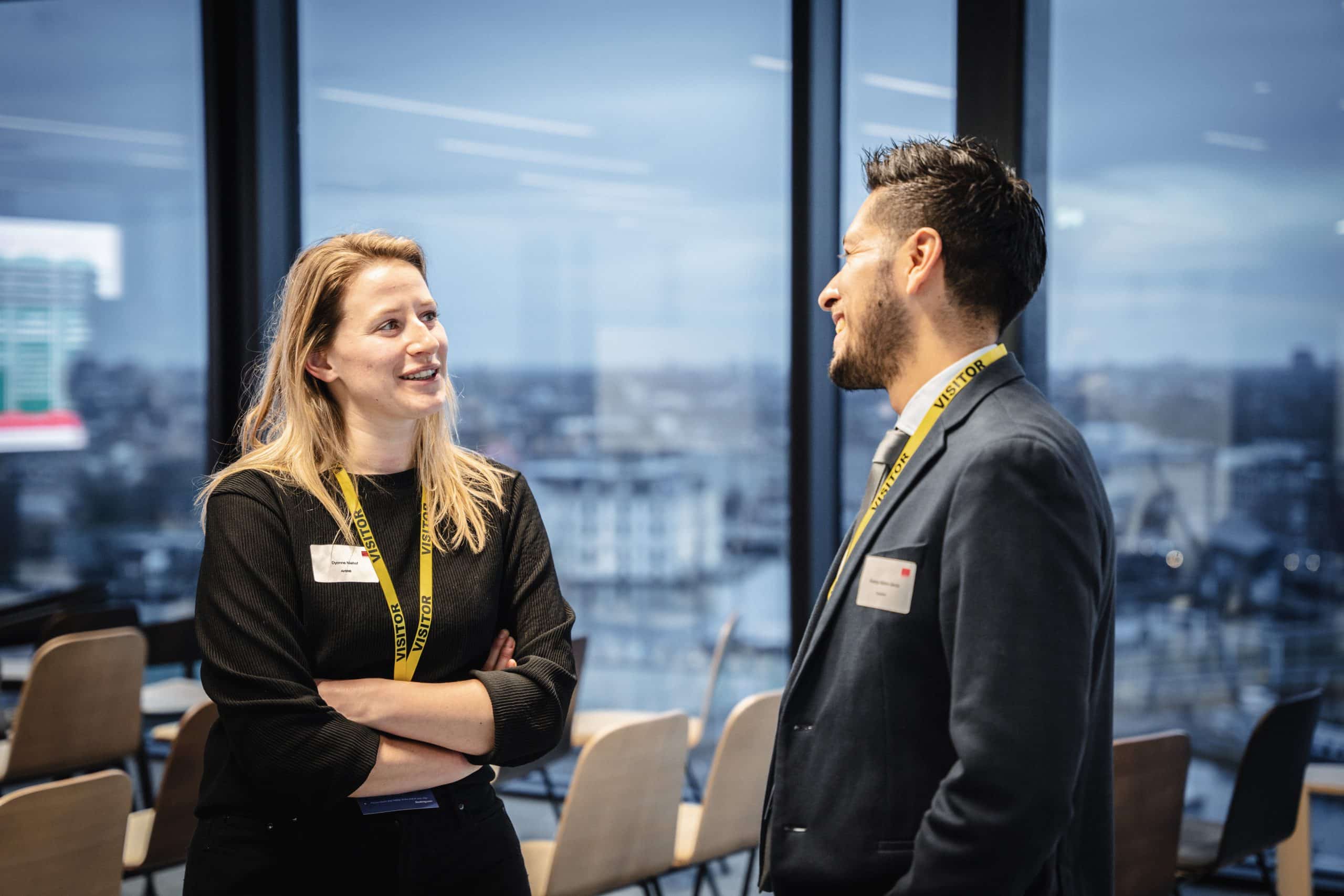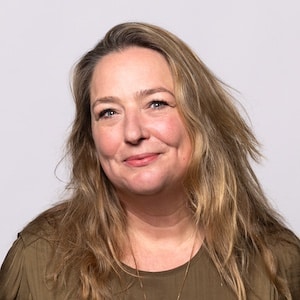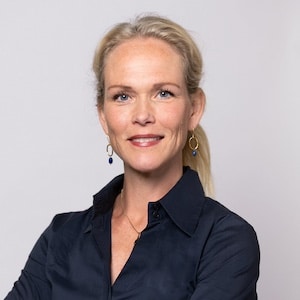What transitions require regional focus?
The first meeting of this year's Network Council was at Booking.com headquarters. From the 11th floor, members overlooked the heart of the city. A great location to explore what the focus should be for the Amsterdam Metropolitan Area.
In the summer of 2023, the doors of Booking.com’s international office finally opened. In the building, 7,000 people of 120 nationalities process some 1.5 million reservations a day. Director of public affairs Inge Janssen called Booking.com the largest employer within the ring, which sees itself as a local business. That is why they contribute to several regional community initiatives, including Techgrounds, Stichting Studiezalen and the Vakantiebank. The building already houses an art gallery, and Refugee Company restaurant will open in April. There will also be a bicycle workshop for people with difficulties entering the job market. Janssen invited everyone in the network to collaborate and grow.
Listening and talking
New executive director Jessica Peters-Hondelink had brought a South African ‘talking stick’, which symbolizes listening. Because how hard is it for us humans to really listen, without reacting? To not directly need to share one’s own experience, or advice? She wished for all members to take the space, tell their stories and listen to what the region needs from the Network Council. “What are the issues of the Amsterdam region? What do we want to focus on?” And, “Business, government, knowledge institution and social club: here is your place.”
Asked about her own drive in life, she replied, “to achieve things greater than ourselves.” To that end, she likes to bring parties together to actually do something (and not just pretend).
Click on the photos to see the complete album. Continue reading below.
Ambitions
Amsterdam Economic Board is the network for regenerative and inclusive economy, with the goal: inclusive prosperity in the Amsterdam Metropolitan Area. Regenerative here means: not taking more from the earth than we give back to it. “We loosen what got stuck and connect where it has become unfastened,” Jessica said. That ambition takes into account the voice of the future and the voice of nature. That means building coalitions around the systemic issues and embracing future sustainable earning capacity in the Amsterdam Metropolitan Area, including social costs and benefits. The network is central to this. The role of the Amsterdam Economic Board is to support the network in finding the themes where there is traction, to be the catalyst in coalitions, and to challenge the network.
The Network Council members discussed in groups which regional issue is most important to them. What should be taken up in a coalition of businesses, governments, academia and societal institutions? What transitions do they see? The groups came up with the following suggestions:
- Add the social element, every transition has them. The voice of young talent is important in this. Every transition needs a story with shared norms and values. The population is aging, productivity must increase, and work is changing because of technology.
- Focus on the city’s dichotomy. Provide good jobs for all students: including those without a college or university education. The transition is that everyone can participate, so not just work for people with the right resume and the right studies.
How do we ensure that education matches the labour market and that we keep talent in the region? - Via regulation, encourage the use of emission-free machines in the manufacturing industry. Reduce regulation that curtail creativity. Who in the region benefits from transition, from growth?
- Link the transitions of lack of space and lack of housing to logistics and mobility. We are not getting ahead because of complicated regulations. And how do we move toward defragmentation (education, energy), towards deregulation, meaning, towards more entrepreneurship and more experimentation?
Jessica encouraged everyone to continue the conversation with each other after this meeting. The Amsterdam Economic Board will take the lead and invite small groups of Network Council members to develop this further.
Growth and well-being
In his closing words, Amsterdam councillor Sofyan Mbarki, remarked the Network Council was considering the same issues as the city and region. He said we are coming into a time of scarcity and that means making choices. “Maybe we can no longer facilitate economic growth but we can facilitate prosperity.” This is not evenly distributed between the city and the region. Locally born and raised labour potential is underutilised. “We have to start winning these people over.” Who will do the work and what work? “Do we go for even more logistics hubs and meat processors or do we say technology is everything?”
What does that mean for the education system? What choices do we make in migration? Do we utilise only our own talent or do we mix it all together? “In times of less scarcity, you can say anything and get away from the painful conversation. Now we get into a trap and have to say, what are we really going to do? For the collective and the growth of prosperity.”
Text: Karina Meerman
Photos: Terence Loos
20 February 2024
Read more about
Contact us
Want to keep up to date?
Get the best regional news and events (in Dutch) via the Board Update newsletter
Share this news
Want to keep informed?
Follow us daily on LinkedIn and sign up for the Board Update newsletter.
Read more
- What AI applications are we already deploying for healthcare and wellbeing? What ...
- Adyen is one of the great success stories of Amsterdam’s tech ...
- Together with enthusiastic partners in three coalitions, the Amsterdam Economic Board is ...

